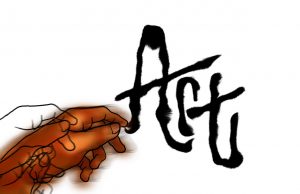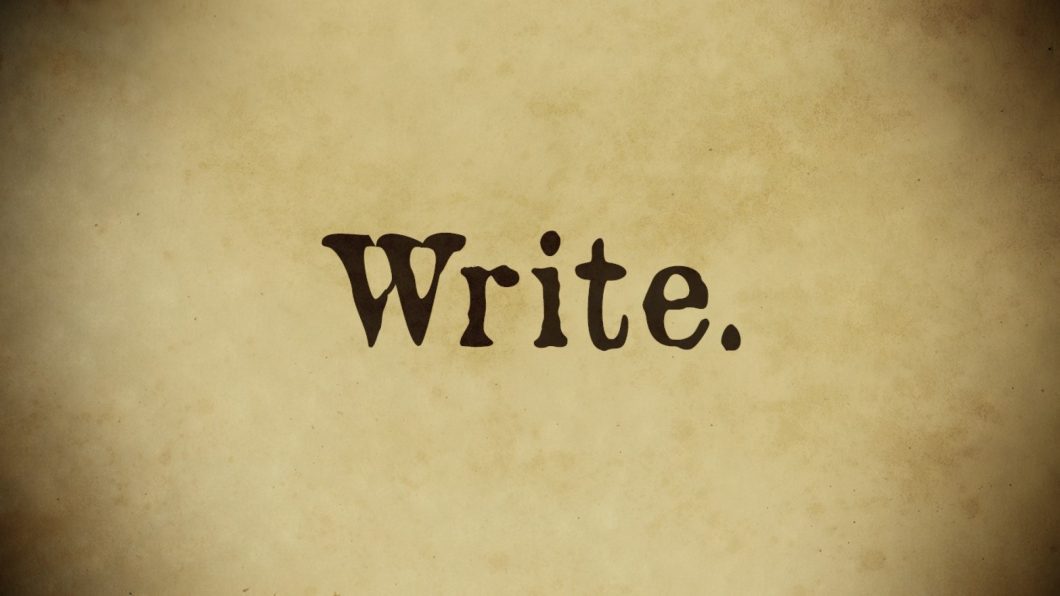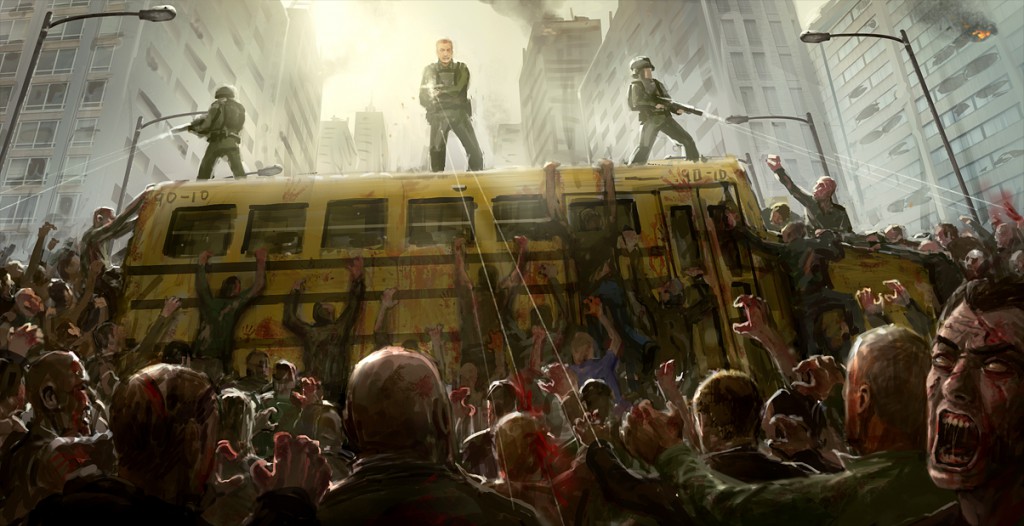Writing is hard. There is no way around it. It doesn’t matter if you are a misty-eyed novice or a crusty vet, there is something fundamentally frightful about staring at a blank page. There are too many possible combinations of words and sentences and ideas. The thought of plotting out a course and navigating that great white canvas is daunting and gathering the courage to do it can make pulling teeth sound easy. But it doesn’t have to be so scary; in fact, the very purpose of this article is to make it a bit more fun.

In recent months I have seriously struggled to put words down. Every time my fingers hover over the keys or my pen touches my notebook, I freeze. Sitting in the pit of my gut is this anxiety that wells up from nowhere and takes hold of my brain till I forget my pressing inspiration and go back to procrastinating. It is like listening to the squeal of metal as I watch a horrific automobile accident take place in slow motion, powerless to do anything but look. The ideas jam together and break. The words that seemed so easily said in my head leak like fine sand through the cracks of my addled brain. In that moment it can take 30 minutes for me to write a complete sentence. So I stopped writing, at least for a while. Does this process sound familiar?
If it does then just know that you are not alone. This pain is a shared heritage amongst writers as a species. Call it the “life of an Artist” if you will. It is the great creative weight that tests all of us, the gatekeeper to the next great work. Those of us who are able to overcome that initial surge of doubt and fear see paper and lines as the starting place for worlds. And I want to share that feeling with all of you. In recent months I have struggled with my writing and here is how I fixed it.
Getting Back To The Basics
One of the first things that you are going to want know is that none of what I am going to say is absolute. As creative beings we are all different. Some of us are visual, some physical, and some of us don’t know what we are but it is way different from everything else.. Don’t take what I say as a fact or rule, these are simply suggestions, a means by which I turned around my own troubled plight.
With that said, if you are having trouble writing and have stopped all together, I found that getting back to the basics helps. Remember when you first started writing? When you could sit down and just go like the wind was pushing your fingers? Okay, well do that. No really, it is actually that simple. For this first exercise I want you to sit down for 15-30 minutes, and write. Once you start don’t stop, the only rule is that you have to write for the full duration with no intermissions or breathers. It doesn’t matter who, what, when, where, why, how, or even if it’s spelled right. Just take your pen or keys and put the pedal to the metal. The time limit is not all that important but it has to be absolute. I am recommending smaller increments but ideally you would work your way up to doing this for an hour.
What this process does is enable you to write something stress free and easy, something with no restrictions or borders. A large part of writing, all of it in fact, requires that you actually put words down on paper. Once they are there you can go back and edit, frame, foreshadow, redo, but if the page is blank than you’re screwed. Which is why I personally found this exercise so helpful.
It forced me to fill pages and pages with random ideas and words. Sometimes I was able to bang out a super rough, almost coherent story. But more often than not I would start out repeating something I heard or watched, and then from there my brain would start work and improvise. As humans we have a natural inclination to create. As a species we understand the world in stories. The trick is getting that engine started. Which is exactly what this does. It forces you to improvise, to stay fast on your feet and moving. The result is often that a story or idea naturally forms out of necessity. Before you even realize what is happening you have created something new and interesting.
Short and Sweet
Now that you have an idea, or ideas, the problem then becomes: What do I do with them? And luckily for you guys I have a short and simple answer: Start Small! I don’t know why but in the past whenever I had a good idea my first inclination was to take it and think about writing a book. I would go from “holy shit this idea is genius, to holy shit I am going to write a quadrilogy!” And that is the complete wrong thing to do. Longer work takes time, experience, and dedication. You have to seriously love whatever you have chosen to write and even then you are going to be working well past the time it gets old. So instead of jumping feet first into a big daunting project, my advice to you is to start with something small.
I had a really good teacher once tell me that writing a good book is all about writing good chapters, which is all about writing good sentences, which is all about picking good words. So, following in his footsteps, start out building your idea sentence by sentence. For overall story length I would suggest a strict rule of no more than 750-1000 words. That way there is no crushing overhead on what you do. Wasting 1000 words requires little effort or investment. At the very worst you simply explored ann idea and it didn’t work. One the other hand, it leaves you more than enough space to write something epic. It also happens to be the submission limit for several contests and magazines. So all that effort you have put in isn’t squandered time, if you feel good about something you’ve done go ahead and try to get it published. You will be surprised at how quickly you go from practice to ambition.
The Great Scheduling Crisis
Lastly, and this is the most important step, you need to keep a schedule. I am so bad at this that it isn’t even funny. I mean my life is one big cluster fuck of procrastination and forgetting. Sometimes I don’t even mean to not do something, I just lose it in my brain. Which is exactly why I needed to introduce a bit of structure. Writing as a profession is all about volume. The only way to get better is to write more. There is absolutely no way around that. So, if you are bumbling around writing small things here and there or when you feel like it, you’re not going to stay consistent. Believe me, I figured this one out the hard way.
Set aside some time and make a schedule. It doesn’t need to be precise but it absolutely has to be consistent. For instance, I write in the mornings before work. I take advantage of the fact that my brain is still muddled, and trick it into sitting down and thinking. I don’t have a set time period or length requirement but I have to write something, anything, before I leave for work. Sometimes I do the exercise I talked about above and other times I write poems about how much I hate schedules. The content doesn’t really matter, what is important is that I am doing something creative. As it turns out, only with practice can you progress and procrastination and fear are not helpful, they are crippling.
With these three simple things not only is it possible to start writing again, but you are going to get better at it as well. One of the first things I noticed after keeping with my schedule was that when I had a good idea I stopped thinking about writing it down and did it. The idea of finding a beginning stopped inducing dread and I became more productive. Which snowballed into me producing a bunch of tiny stories and ideas. I found that I was able to force past that great creative weight. And I have to say, you’re going to like it on the other side.










